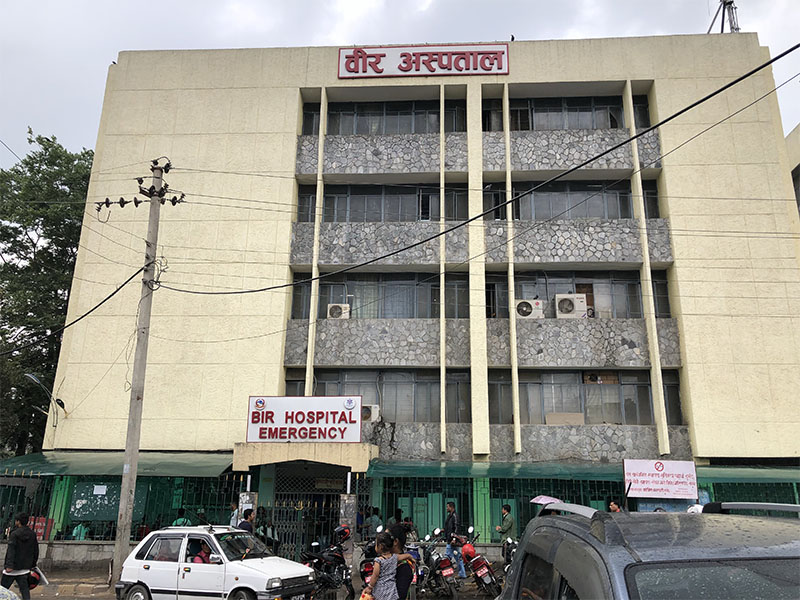Non-cooperation of Bir Hospital puts patients’ lives at risk in trauma centre
Kathmandu, August 24
Hari (name changed), 62, was rushed to state-owned National Trauma Centre on August 1 after he suffered injuries to his spinal cord. As doctors were preparing for surgery, Hari was diagnosed with heart problems. This required separate medical treatment.
Since the trauma centre did not have any heart specialist, it requested Bir Hospital to send a doctor. But the doctor did not arrive. After two days, the patient, whose condition was critical, died due to lack of timely treatment, said an NTC doctor on condition of anonymity.
Many patients who visit NTC are facing difficulties and most of them are referred to other hospitals due to lack of doctors.
NTC, which is a part of Bir Hospital, has been clearly told to reach out to Bir Hospital doctors whenever needed. However, many doctors working at Bir Hospital refuse to attend patients admitted to NTC, stating both the hospitals are under different administrative units and extra allowance should be provided if they attend patients at NTC.
Bir Hospital management has, however, said the demand made by doctors is ‘unreasonable’ because it is mandatory for doctors hired by it to work for NTC, as both are a part of National Academy of Medical Sciences. This tug of war is preventing patients of the trauma centre from receiving timely treatment and putting their lives at risk.
NTC came into operation in 2015 to provide specialised care to patients suffering from major traumatic injuries, including road, fire and other severe accidents. The name, NTC, suggests that all cases that land at the hospital are ‘emergency’ and patients require immediate and special medical attention and treatment. But before starting a treatment, a patient may be diagnosed with other diseases. In such a case, consultation must be held with concerned medical specialists and those specialists may be lacking at NTC. This is where the problem begins.
NTC, for instance, does not have its own Department of Medicine, meaning patients suffering from diabetes, heart, neurological, intestinal or liver problems need to be attended by medical specialists of Bir Hospital.
“But for the last six months none of the doctors from Bir Hospital has visited NTC,” said Dr Binod Sherchan, senior orthopedic consultant and head of the Department of Medicine Unit-I of Bir Hospital.
Recently, when a patient, who was supposed to undergo plastic surgery, was diagnosed with blood infection, NTC had to ask the person to visit Bir Hospital on his own to get a proper test, according to a doctor.
“If we had waited for someone from Bir Hospital to visit our patient at NTC, we would have to postpone the surgery,” said the doctor, who did not want to be identified.
NTC has already written to Bir Hospital seeking immediate support. “But we still have not heard from them,” said NTC chief medical superintendent Dr Pramod Upadhyay. NTC had also informed former NAMS vice-chancellor Dr Ganesh Bahadur Gurung, who retired about two weeks ago, about the problem.
Since Gurung stepped down, no one has been appointed to the post of vice-chancellor at NAMS. Gurung said he had tried to resolve the problem before his retirement and had told Bir Hospital doctors to attend patients of NTC.
“But no one listened. And we can’t force government doctors to provide services,” Gurung said, adding, “The problem could be minimised to some extent if some of vacant posts for physician doctors at NTC are filled. Also, directors of NTC and Bir Hospital need to coordinate well.”






